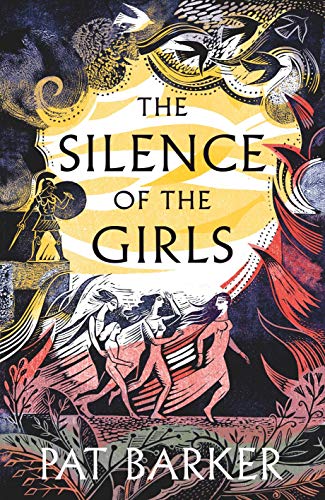The silence of the girls

"From the Booker Prize-winning author of the Regeneration trilogy comes a monumental new masterpiece, set in the midst of literature's most famous war. Pat Barker turns her attention to the timeless legend of The Iliad, as experienced by the captured women living in the Greek camp in the final weeks of the Trojan War. The ancient city of Troy has withstood a decade under siege of the powerful Greek army, who continue to wage bloody war over a stolen woman--Helen. In the Greek camp, another woman watches and waits for the war's outcome: Briseis. She was queen of one of Troy's neighboring kingdoms, until Achilles, Greece's greatest warrior, sacked her city and murdered her husband and brothers. Briseis becomes Achilles's concubine, a prize of battle, and must adjust quickly in order to survive a radically different life, as one of the many conquered women who serve the Greek army. When Agamemnon, the brutal political leader of the Greek forces, demands Briseis for himself, she finds herself caught between the two most powerful of the Greeks. Achilles refuses to fight in protest, and the Greeks begin to lose ground to their Trojan opponents. Keenly observant and cooly unflinching about the daily horrors of war, Briseis finds herself in an unprecedented position to observe the two men driving the Greek forces in what will become their final confrontation, deciding the fate, not only of Briseis's people, but also of the ancient world at large. Briseis is just one among thousands of women living behind the scenes in this war--the slaves and prostitutes, the nurses, the women who lay out the dead--all of them erased by history. With breathtaking historical detail and luminous prose, Pat Barker brings the teeming world of the Greek camp to vivid life. She offers nuanced, complex portraits of characters and stories familiar from mythology, which, seen from Briseis's perspective, are rife with newfound revelations. Barker's latest builds on her decades-long study of war and its impact on individual lives--and it is nothing short of magnificent"--
"The Iliad, as experienced by the captured women living in the Greek camp in the final weeks of the Trojan War"--
BUY THE BOOK
Join a book club that is reading The silence of the girls!
Community Reviews
beautifully written but it was hard to get through the chapters that were in achilles' perspective. i was surprised that a third of this book was written from his POV when the book is literally called 'the silence of the girls' and is marketed as a re-telling of the Iliad from Briseis' perspective?? despite that though, i still really enjoyed this!! major trigger warnings obvi!!!
Lot to think about.
All time favorite
Before I begin the review of Writer Pat Baker’s novel The Silence of The Girls, I have not read the works of the Ancient Greek Poet Homer. I thought this was important to mention because Pat Baker’s novel is reimaging parts of Homer’s The Iliad from the point of the enslaved Trojan “battle-won concubine” (Cahill 20) named Briseis (Baker 8) who the Ancient Greek warrior Achilles and the Ancient Greek Leader Agamemnon have a falling out over. In parts two and three, chapters are told from the point of Achilles and Briseis. In the epigraph of The Silence of the Girls, Baker quotes the writer named Philip Roth that Achilles and Agamemnon were having essentially “a barroom brawl. They are quarreling over women. A girl, really. A girl, really. A girl stolen from her father. A girl abducted in a war” (Baker ix). The story of The Iliad starts with the story of the fight between Achilles and Agamemnon (Cahill 20). Since Roth believes The Iliad is the first work of European literature, this fight over Briseis is the start of European literature (Baker ix). I believe this passage from Roth heavily influenced Baker’s The Silence of The Girls. Baker was interested in putting the character of Briseis back into The Iliad. By focusing on the character of Briseis, Baker is able to look at the effects of war on women in the Ancient Greek World, including the role of sexual violence in war. I read The Silence of The Girls on my Kindle. I thought that Pat Baker’s novel, The Silence of The Girls was an interesting novel about how war affected women in Homer’s The Iliad.
Works Cited:
Cahill, Thomas. 2003. Sailing The Wine-Dark Sea: Why the Greeks Matter. New York: Random House, Incorporated.
This book is a very intense read. It’s a realistic portrayal of what happens to women after a city is conquered. Characters are well developed and the story is true to the Iliad. It details parts of the Iliad more than others while closing over other major events in the story.
See why thousands of readers are using Bookclubs to stay connected.